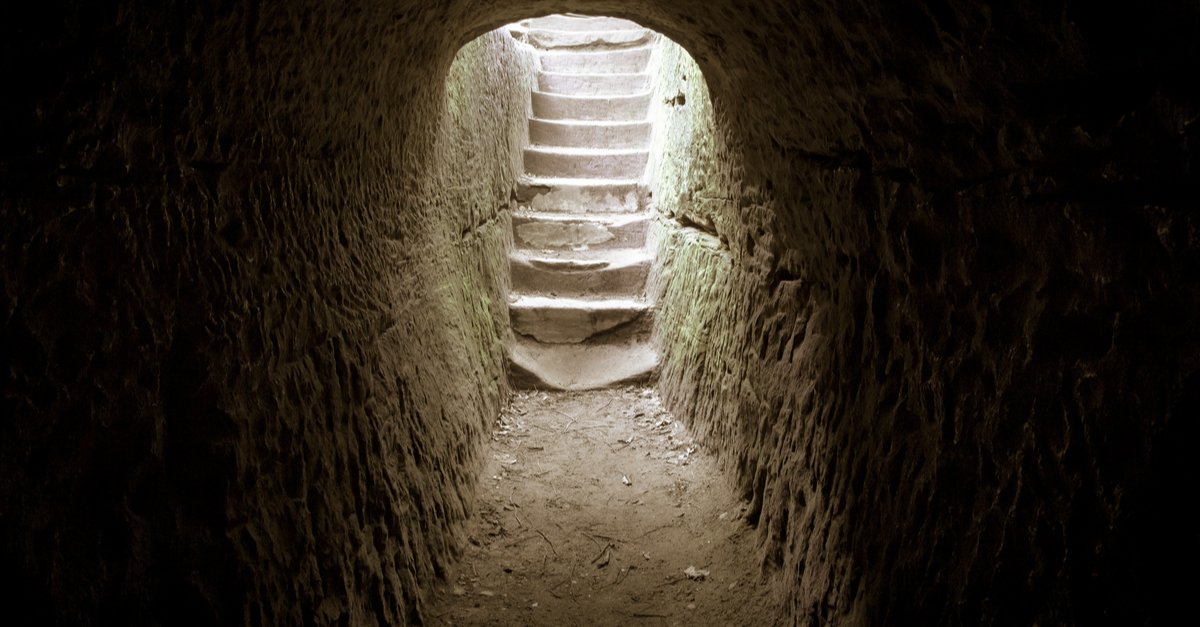


Get a free copy of Parental Rights & Education when you subscribe to our newsletter!

In the course of all human history there is no single event more significant to the hope of all mankind than the bodily resurrection of Jesus Christ. It proved the whole testimony of Jesus and the early prophets to be true. It inaugurated a new and lasting promise upon which the New Testament Church is built.
Over 500 witnesses testified to the accuracy of this claim, many of whom gave up their own lives. The apostles were willing to die for this truth. The entire calendar, including the ordering of the days of the week, were changed to reflect the realities of Jesus’ birth and resurrection.
“Without the resurrection, the cross is meaningless.” – Billy Graham
“A Christian is not a skeptic. A Christian is a person with a burning heart, a heart set aflame with certain of the resurrection.” – R.C. Sproul
“Most striking perhaps is the fact that Jesus appeared to Paul. Paul hated Christians and was hell-bent on destroying the church. What transformed him from a persecutor of Christians to a pastor, who was willing to endure extraordinary hardship to proclaim the Gospel? Paul claimed it was the resurrection.” – Gary Habermas
“The resurrection is the supreme vindication of Jesus’ divine identity and his inspired teaching. It’s the proof of his triumph over sin and death. It’s the foreshadowing of the resurrection of his followers. It’s the basis of Christian hope. It’s the miracle of all miracles.” – Lee Strobel.
On this Easter there is no end to what could be written concerning the glorious resurrection of Jesus Christ. Paul said the resurrection is of first importance and that without the resurrection of Christ “we of all people are most to be pitied.”
Here are 5 Reasons Why the Resurrection Matters:
The Resurrection proves that Jesus is the Son of God. Every claim that Jesus made about his deity, his authority, his power to forgive sin, his kingdom and his relationship to God the Father as the only begotten Son was vindicated by his glorious resurrection.
Just outside a tomb where the body of Lazarus was buried for 4 days, Jesus said to Marth, “I am the resurrection and the life. He who believes in me though he die, he shall live” (Jn 11:25). He then said to Martha, “Do you believe this?” Her response was incredible. She said, “Yes, Lord, I believe that You are the Christ, the Son of God, who is to come into the world.”
Make no mistake that Jesus claimed to be more than a prophet or teacher. Jesus claimed to be the divine Son of God. His resurrection on the third day vindicated all the claims he made regarding his identity (the person of Christ) and his mission (the work of Christ).
Paul later wrote to the church at Rome that Jesus was “declared the Son of God in power according to the Spirit of holiness and by his resurrection from the dead, Jesus Christ our Lord” (Rm 1:4). There is no mistaking that the resurrection proves that Jesus Christ is the Son of God.
The resurrection not only means that Jesus Christ is the Son of God, but that He was vindicated before God. What does it mean to be vindicated? It means that God the Father found the sacrifice of His Son to be acceptable. The sacrifice of Jesus Christ fully satisfied the wrath of God.
At Peter’s preaching at Pentecost, he said, “God raised him up, loosing the pangs of death, because it was not possible for him to be held by it” (Acts 2:24). We know that God the Father raised the son, because it was not possible for the grave to hold him. Why? It was God’s pronouncement upon his fully righteous Son who willing gave up his life, undergoing the condemnation of death. Jesus, however, was not guilty. Unlike Adam, Jesus died a sinless man. Death could not hold Jesus Christ.
While Jesus raised Lazarus from the dead, Lazarus would later die again. When Jesus was raised, he was by God’s declaration that He is worthy and righteous. It would have been impossible for a just God to allow Jesus to undergo a permanent death. His resurrection is God the Father’s vindication of His Son.
The resurrection of Jesus Christ is for our vindication also. This comes to us twofold:
First, we are vindicated or justified before a Holy and Living God. Paul writes in Romans that just as Abraham was made righteous by faith, apart from the works of the law, we too will be “counted” righteous who believe in Christ (Rom 4:24). While Jesus was delivered up for our sin, he was “raised for our justification.” This is the basis of our peace with God (Rom 5:1). Without the resurrection of Jesus Christ, our “faith is futile” and we are “still in our sins” (1 Cor 15:17).
Second, we are vindicated before a doubting world. As Job was undergoing miserable trials, losing his children, wife and even his scoffing friends, he said, “As for me, I know that my Redeemer lives and that in the end he will stand on earth” (Job 19:25). Paul also writes, “Who will bring a charge against God’s elect? God is the one who justifies” (Rom 8:33). The world sees our Gospel as weak and foolish. The powerful resurrection of Jesus Christ is our vindication before a doubting world that sees no power or wisdom in the cross of Christ (1 Cor 1:18).
The bodily resurrection of Jesus Christ not only accomplished Christ’s mission on earth but ensured that in the heavenly realm we have a true, lasting Great High Priest mediating for us before our heavenly father. “For there is one God, and there is one mediator between God and men, the man Jesus Christ” (1 Tim 2:5).
In Hebrews chapters 4-8, we see a picture of what it means that Jesus Christ is our great high priest. Specifically, his death and resurrection were not merely physical realities, but we are told that in the cosmic, heavenly places where the true tabernacle of God resides, Jesus Christ entered to true tent where God resides, not made by human hands (Rom 8:1-2).
This was only made possible by the bodily resurrection and later ascension of the Lord Jesus Christ. Jesus’ resurrection means that he is our Great High Priest and minister of a new and more lasting covenant. “Therefore, God highly exalted him above to the highest place and gave him the name that is above every name” (Phil 2:9).
Christ’s resurrection is a promise that we too will be raised from the dead. 1 Corinthians 15:20-28 is the promise that Jesus is the first-fruit, not only of salvation, but bodily resurrection. Just as Adam brought sin and death into the world, now all die. Jesus Christ brings about the promised hope of resurrection. All those who put their faith and trust in Jesus Christ don’t just look forward to heaven, but a bodily resurrection as well.
Paul concludes at the end of 1 Corinthians 15, “Death is swallowed up in victory. O death, where is your victory? O death, where is your sting? The sting of death is sin, and the power of sin is the law. But thanks be to God, who gives us victory through the Lord Jesus Christ” (v. 54-57).
Easter is the promise that an empty tomb means that one day those who have died in Christ will be vindicated and raised from the dead if they have placed their hope and trust in the living Savior.
The Church must be involved in public discourse and influence. That’s why we write — so our readers can be equipped to understand and pursue righteous change in the world. For more timely, informative, and faith-based content, subscribe to the Standing for Freedom Center newsletter.
